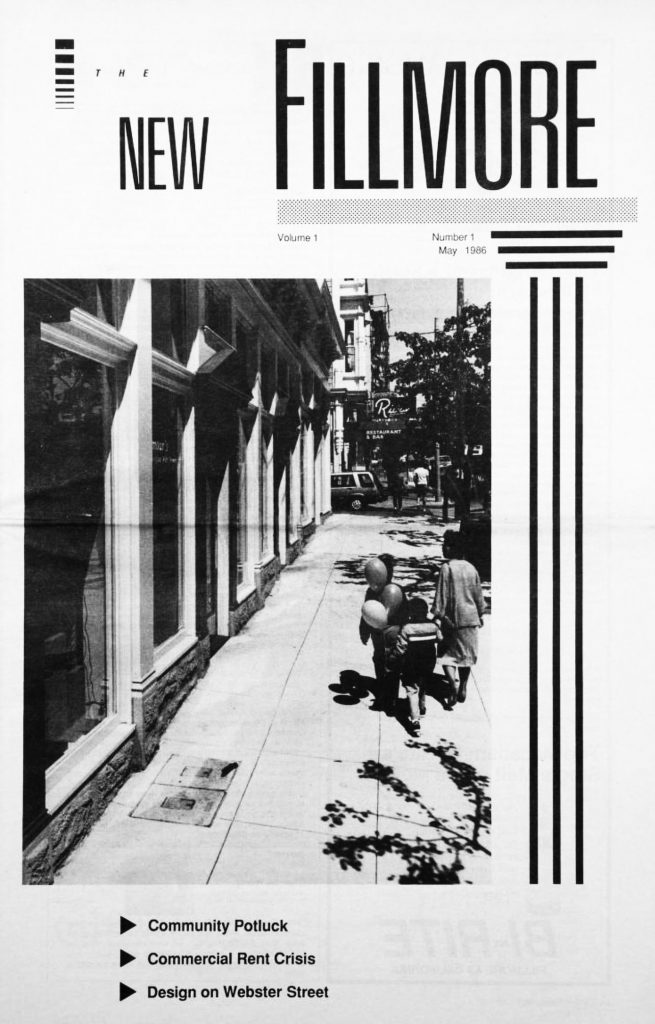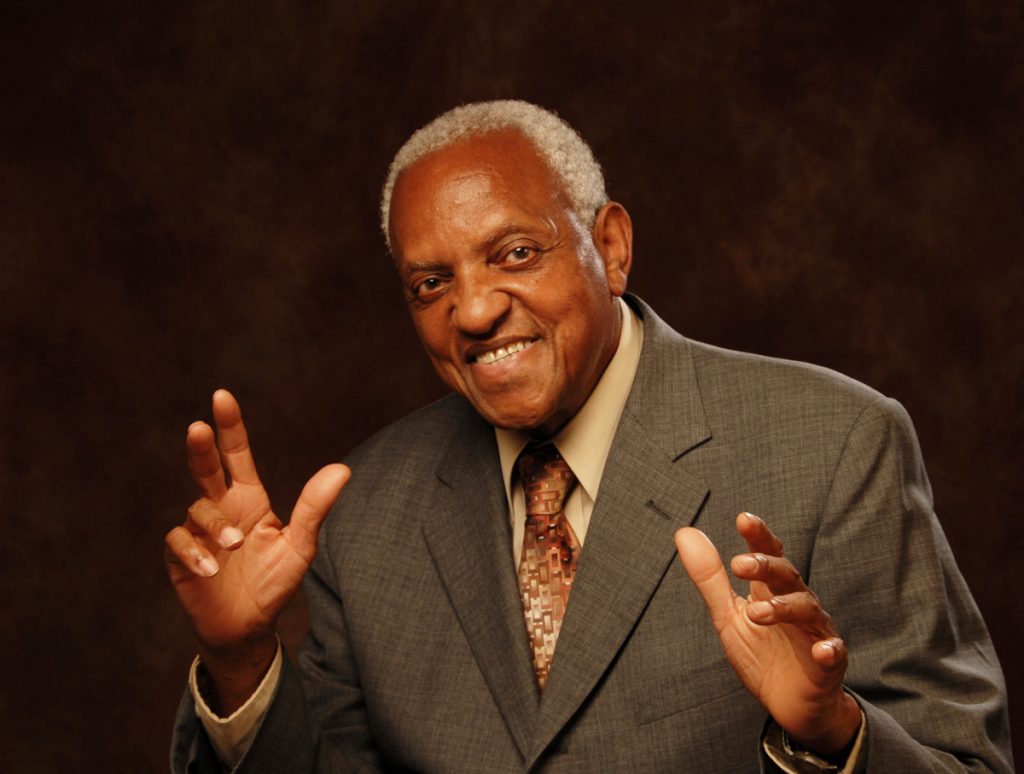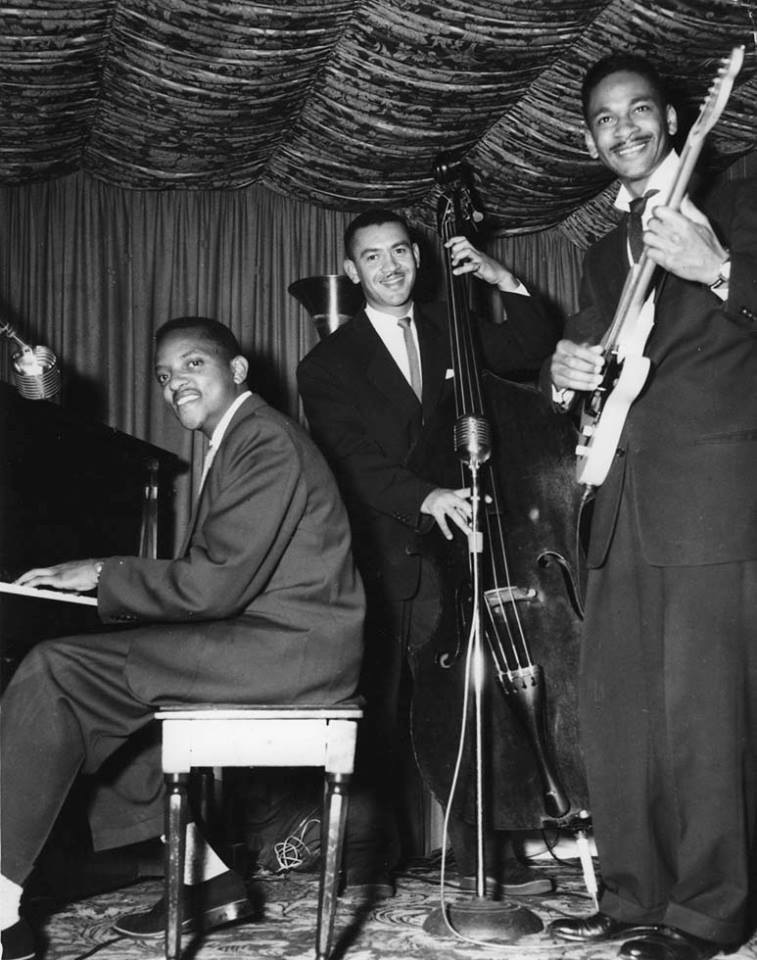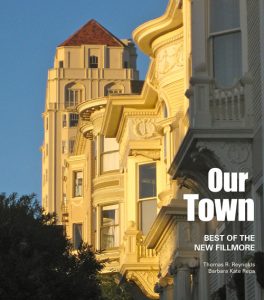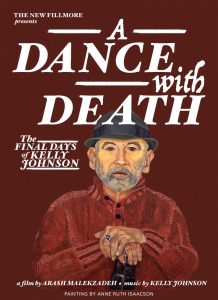ONE OF THE enduring musical careers of Fillmore’s jazz era ended on February 5 when pianist and vocalist Frank Jackson died at age 92 of complications of the flu.
He was playing almost until the very end. His last gig was on January 25 at Pier 23, with Al Obidinski on bass and Vince Lateano on drums. Jackson started sneezing on the way home, and within a few days had a cold that kept getting worse. On February 4, he was admitted to the V.A. Hospital in Palo Alto and diagnosed with the flu. He died the next day.
“He was so full of life, wonderful memories and compassion for all,” said his wife and No. 1 fan Kathy Jackson in announcing his death. “His talent and repertoire were unparalleled.”
Jackson was born in 1925 in Cleburne, Texas. He moved with his family — his parents, four older siblings and two nephews — from Texas to San Francisco in 1942 and rented a house in the Fillmore that had previously been occupied by a Japanese family interned during World War II.
Jackson began playing in neighborhood clubs while he was still a teenager. When he returned in 1946 from two years in the Army, he found himself in the center of the exploding Fillmore jazz scene. With his own groups and as a sideman, sometimes backing visiting stars such as T-Bone Walker, Ruth Brown and Lionel Hampton, he played all the Fillmore joints. They included Vout City — which soon became the after-hours club Jimbo’s Bop City, where Jackson was in the house band — as well as the Blue Mirror, Club Alabam, Jack’s Tavern and the lounge at the Booker T. Washington Hotel.
“The Fillmore, when we came here, was open to everybody,” Jackson told Lewis Watts and Elizabeth Pepin Silva in an oral history for their book, Harlem of the West. “Downtown, there were some problems. You’d get an uncomfortable feeling. I could see what my parents had to go through in Texas.”
From those experiences, Jackson developed the philosophy he would follow all his life: “I found that bitterness doesn’t help you. You still have to live your life.”
Race didn’t seem to matter so much in the Fillmore. “The Fillmore wasn’t just black music,” Jackson said. “Musicians here intermingled and worked together. They’d put a band together, and it had nothing to do with race, creed or color. It had to do with how a musician played.”
Jackson shared stories in Harlem of the West about jazz greats he’d played with and heard in the dozens of jazz joints on and near Fillmore.
“The first place Billie Holiday sang in the Fillmore was the Champagne Supper Club,” he said. “It was probably the mid-1950s. She also appeared at a downtown club called The Say When, on Bush. I was in their house band at the time, so I got to hear her every night. She was pretty sick by then, so they would help her up on the stage, and she’d sit on a stool and sing like she was 20 years old. Boy, it was amazing.”
The Club Flamingo at 1836 Fillmore — also known as the Texas Playhouse — was another place Jackson remembered fondly.
“The Playhouse was popular, and most of the time you couldn’t get in. It was beautiful — elegant, but small,” Jackson recalled. “There were often crowds standing outside. One afternoon I stood there talking to Louis Armstrong. He was outside smoking, taking a break from working downtown.”
The Primalon Ballroom was at 1223 Fillmore.
“The Primalon was fun,” Jackson said. A lot of times they would have famous big bands — Lionel Hampton, Basie. Man, it was great. I was always hanging around the bandstand.”
Bop City was the place where everybody went.
“Frank Foster had just got out of the Army when he first came to Bop City,” Jackson said. “I met him that first night. He came in with an old-fashioned suitcase horn. The case was heavier than the horn! I was playing with Pony Poindexter that morning. Dexter Gordon was also on the set. If Pony saw a horn player come in, he’d call him up to play, and they’d always play something really fast and give the new guy a workout.
“So when Pony saw Frank come in, he said, ‘Come on, soldier boy, come up.’ Frank came up, took his horn out and Pony called ‘Cherokee.’ They played the first chorus, and before anybody else could play, Frank was already playing the solo and played about three or four choruses. Nobody knew him, but it just woke the place up. He really burned it up. Pony was a little bit embarrassed because it was supposed to be a head-cutting session, and it backfired on him.”
One night Bird walked in.
“Then there was Charlie Parker, who took jazz up a notch — from jazz to bebop,” Jackson said. “The Bop City musicians were blown away by him, and so was the audience.”
Jackson played at Bop City six nights a week and did that for about seven years.
“You never knew who was going to come in,” he said. “One night — well, it was really one morning — [John] Coltrane was there. He was a young man, and he was doing something different from everybody else. He didn’t feel like he was anything phenomenal. He was just a horn player. But he was quite a horn player.”
Eventually many musicians went elsewhere to advance their music and their careers, and the redevelopment wiped out what was left of the Fillmore jazz scene. But Frank Jackson stayed local — and kept playing.
He became a favorite of jazz vocalist and club owner Kim Nalley, who got her own start decades later singing at Harry’s Bar on Fillmore.
“We first bonded over obscure Nat King Cole tunes,” Nalley told the Chronicle in 2015 as she and Jackson prepared to perform together to celebrate his 90th birthday. “There was a song (“If You Can’t Smile and Say Yes”) — ‘Baby, let bygones be bygones ’cause men are scarcer than nylons’ — and he would do it for me.”
Frank Jackson was the first local musician to play at the new Yoshi’s jazz club on Fillmore, appearing only a few days after it opened in November 2007.
A musical celebration of his life is being planned for the spring.
Filed under: Music, Neighborhood History



